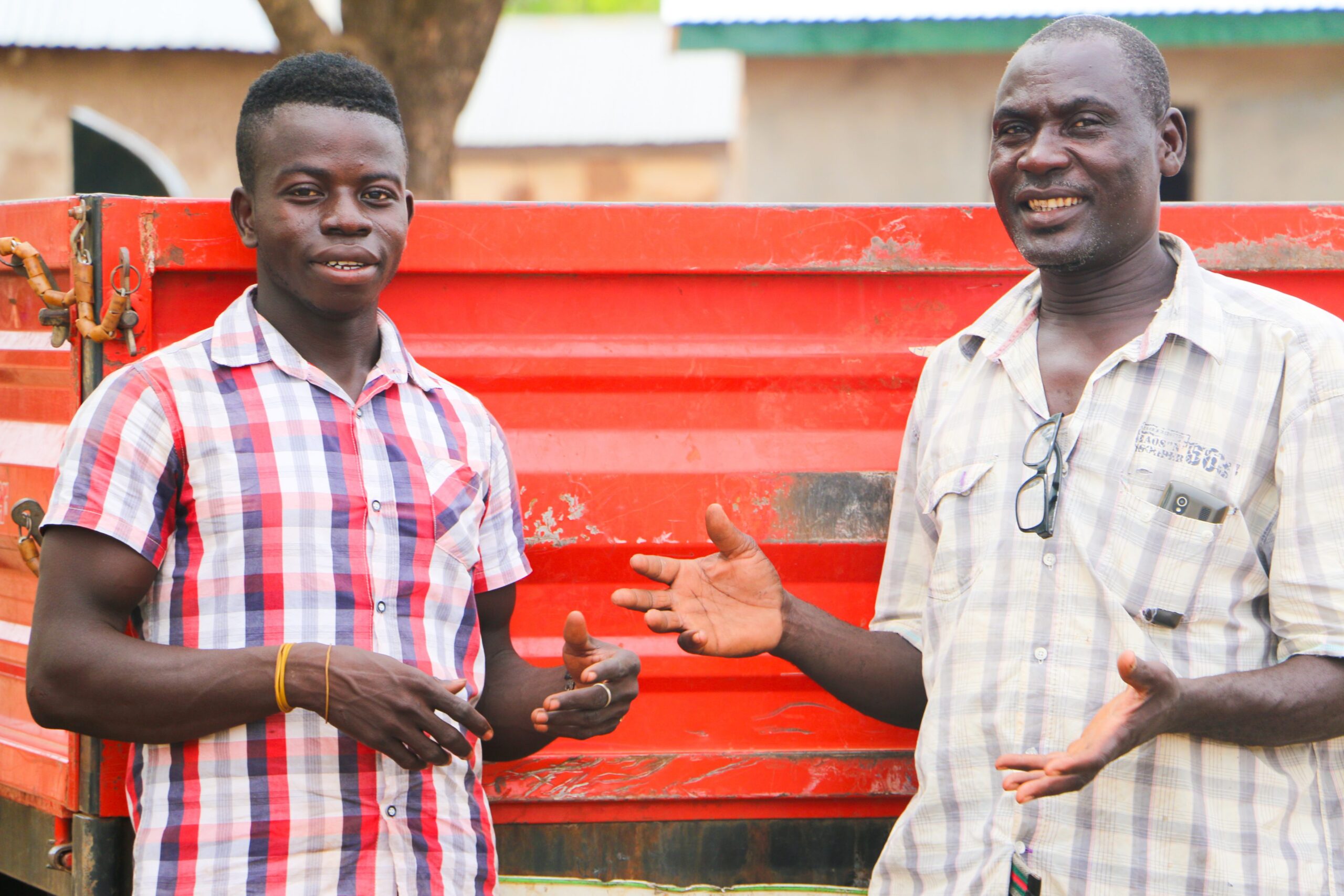
Fusseini Abubakar cultivates maize, rice, soybean, groundnut, and cowpea on his farm in the Karaga District of Ghana’s Northern Region. In 2010, when Fusseini first became involved with USAID’s Agricultural Development and Value Chain Enhancement II (ADVANCE II) Project, a project implemented by ACDI/VOCA that supports the scaling up of agribusinesses, he learned new farming techniques and applied them to his farm.
From planting in rows and properly applying fertilizer to using certified seeds, Fusseini gained new skills and knowledge. He also took part in trainings in business management, learning recordkeeping, budgeting, and contract negotiation. Now, he considers his farm to be a profitable business and serves as vice chairman of the Karaga Outgrower Network.
USAID’s ADVANCE II Project has supported 424 outgrower businesses that serve 131,493 smallholder farmers in Ghana to improve their yields and gross margins in maize, rice, and soybean. Since 2010, that has meant training 124,572 people, 49 percent of whom have been women, in good agricultural practices, post-harvest handling, quality standards, and business management to improve farmers’ long-term productivity and income.
Before engaging with USAID’s ADVANCE II Project, Fusseini provided services to 58 farmers, or outgrowers. He now works with 750 outgrowers, including 328 women.
“There were no chemicals to spray and kill weeds before planting, and, also, we [had] to manually prepare and plant seeds. When ADVANCE came, they taught me new farming techniques by showing me how to plant in rows and supported me to get one variety of pannar seed.” — Fusseini Abubakar, owner of Fabuk Farms and participant of USAID’s ADVANCE II Project
At the start, Fusseini offered services using his one tractor. By 2016, the boost in income he experienced thanks to the trainings allowed him to procure two tractors, two corn shellers, and two ploughs as well as a ripper, manual planter, and harrow.
With his newly acquired equipment and adoption of new technologies and management practices, Fusseini’s productivity grew even more. His maize yields tripled, increasing from two metric tons per hectare in 2011 to more than six metric tons per hectare in 2018.
To share his knowledge, Fusseini used some of his land as a model farm to demonstrate good agricultural practices to others in his community. “I then decided to plant on a larger land close by the road for it to be visible for all eyes to see when passing,” he said.
By training and monitoring his outgrower farmers, Fusseini helped increase their yields from 1.7 metric tons per hectare to 4.5 metric tons per hectare in 2018.
Fusseini is now able to support his 12 children and plans to help other youth in his community. He currently employs a young man (pictured in the first photo) to manage his recordkeeping and mobile money payments. And he is working with young farmers every day so that they are prepared to take over and manage their parents’ farms as businesses.
Learn more about USAID’s Agricultural Development and Value Chain Enhancement II (ADVANCE II) Project.
Learn more about our work in Ghana.







